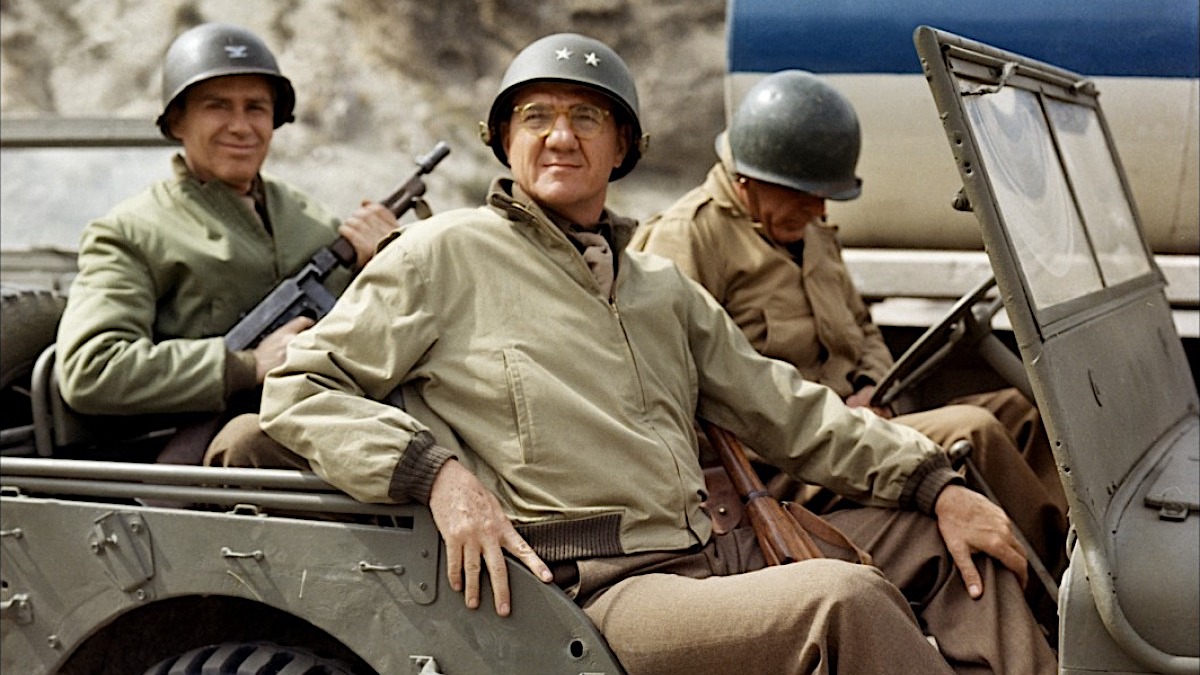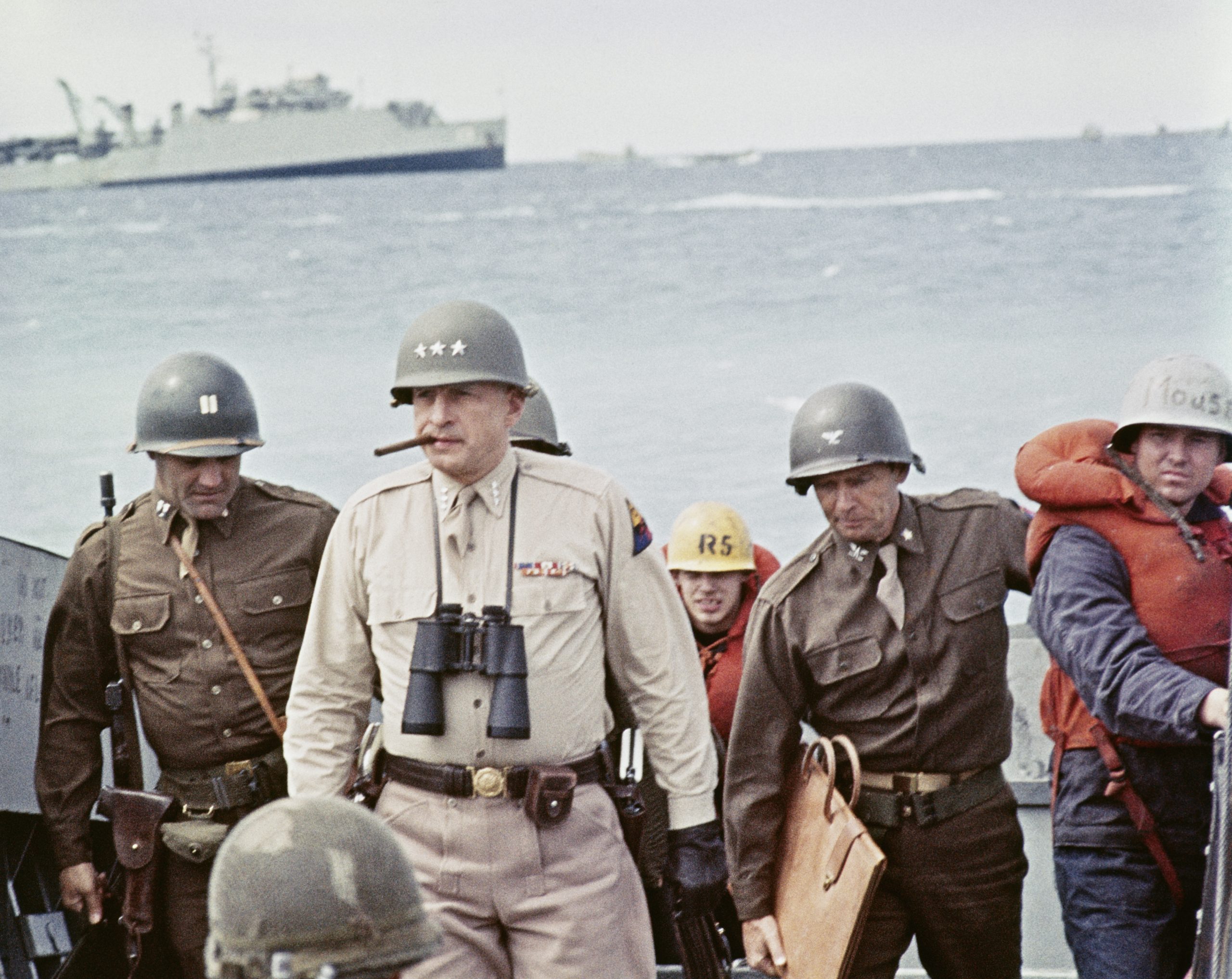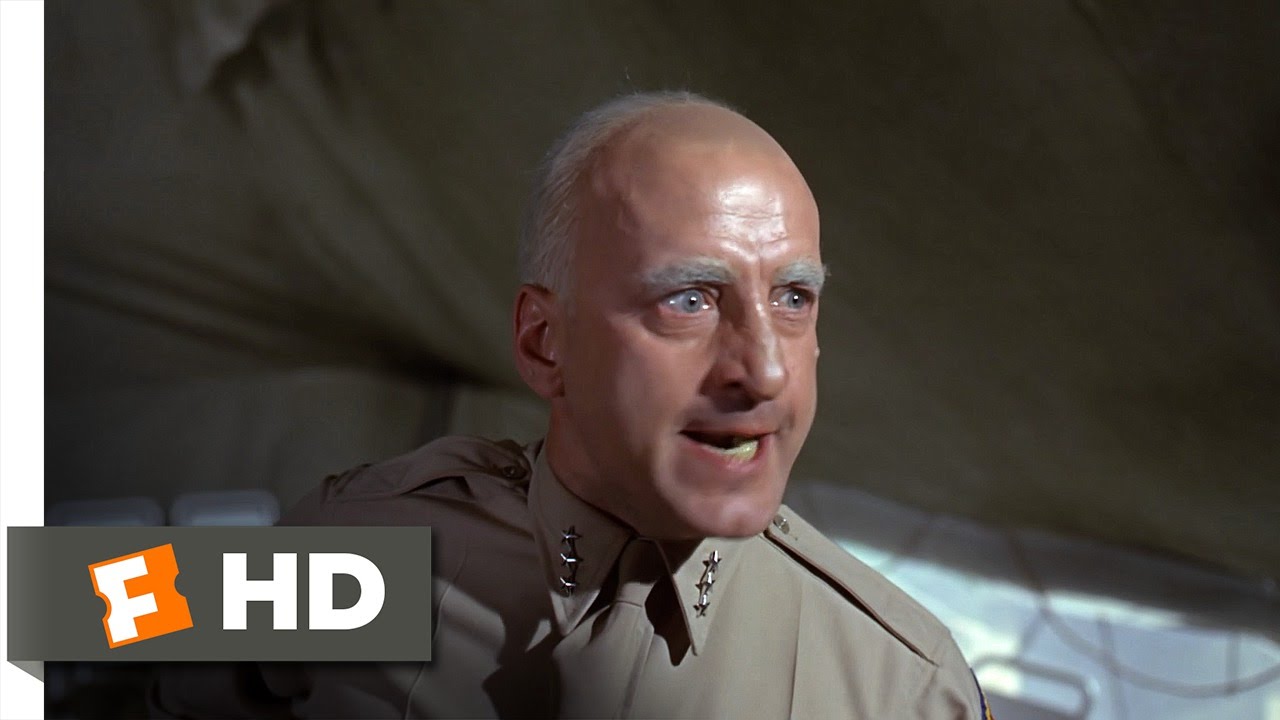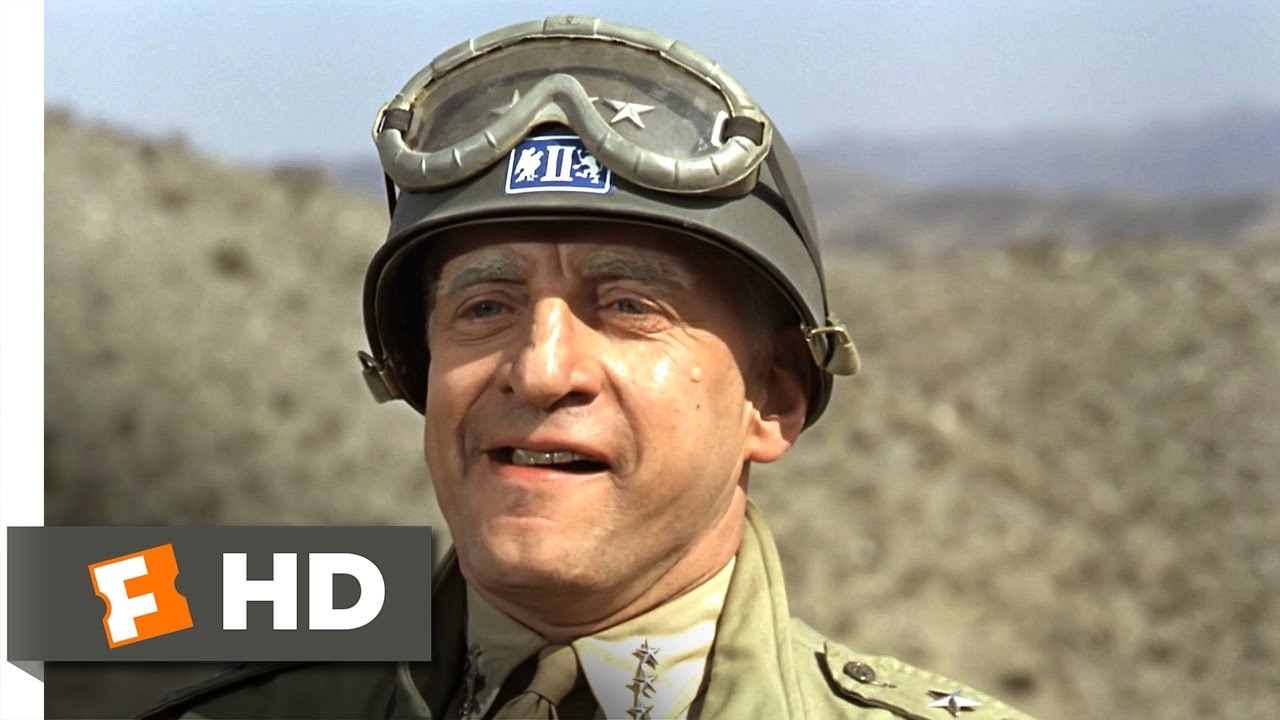🎬 Patton (1970): The General, The Legend, and The Man Behind the Myth

Patton (1970) is a biographical war film that stands as one of the finest portraits of military leadership ever committed to screen. Directed by Franklin J. Schaffner, the film stars George C. Scott in an unforgettable, Oscar-winning performance as General George S. Patton, one of the most controversial and revered figures of World War II. Patton isn’t just a war film; it’s a psychological exploration of the complexities of leadership, ambition, and the cost of glory.
Plot Overview:
Patton follows the career of the brilliant, but often erratic, General George S. Patton during World War II, starting with his command in North Africa and continuing through the invasion of Europe and the fall of Nazi Germany. The film captures Patton’s bold military tactics, his fierce patriotism, and his personal struggles with ego and the consequences of his actions.
The opening scene, which features Patton delivering a stirring speech in front of a massive American flag, sets the tone for the rest of the film. His unapologetic belief in war as a path to greatness and his disdain for weakness defines the character. Throughout the movie, Patton’s clashes with both the enemy and his own superiors create a complex portrait of a man whose brilliance on the battlefield is matched by his flaws off it.
Character Analysis and Performances:
George C. Scott’s portrayal of Patton is the film’s cornerstone. His performance captures the contradictory nature of the man: a military genius who was also deeply flawed. Patton’s belief in reincarnation, his love for ancient military history, and his relentless pursuit of victory are all explored in depth. Scott’s commanding presence and intensity breathe life into the character, making him both admirable and, at times, repellent.

Patton’s relationship with other military leaders, particularly General Omar Bradley (played by Karl Malden), is a crucial part of the film. Bradley’s cautious, by-the-book approach contrasts sharply with Patton’s aggressive style, highlighting the tension between different philosophies of leadership.
While Patton’s leadership leads to some of the most significant Allied victories, the film doesn’t shy away from depicting his controversial decisions, such as slapping a soldier suffering from shell shock. This incident nearly ends his career, illustrating the fine line between Patton’s brilliance and his inability to temper his personality in times of crisis.
Themes and Analysis:
Patton is, at its core, a study of leadership. The film asks whether the qualities that make someone a great general—ruthlessness, single-mindedness, and ego—are compatible with being a great man. Patton is depicted as a man born for war, someone who thrives in the chaos of battle and who views combat as his destiny. His obsession with greatness and his need to constantly prove himself drive the narrative forward, making his personal journey as important as the war itself.

The film also explores the costs of ambition. Patton’s desire for glory often alienates those around him, including his superiors and the men under his command. His inability to conform to military decorum and his tendency to speak out of turn lead to his downfall, despite his battlefield successes. The film leaves viewers questioning whether Patton was a hero, a villain, or something in between.
Another key theme is the notion of legacy. Patton is obsessed with the idea of being remembered, comparing himself to historic figures like Alexander the Great and Napoleon. This obsession drives much of his decision-making and provides insight into why he was willing to take risks that others might not have. However, the film also suggests that this need for recognition may have clouded his judgment at times.
Cinematography and Direction:

Franklin J. Schaffner’s direction is epic in scale, yet intimate in its portrayal of Patton’s personal struggles. The battle scenes are meticulously shot, with sweeping landscapes and dynamic camera work capturing the grandeur and brutality of war. The cinematography by Fred J. Koenekamp is striking, especially in its use of wide shots to emphasize both the scale of the conflict and Patton’s isolation within it.
The film’s score, composed by Jerry Goldsmith, is another highlight. The iconic theme, which blends military marches with a haunting echo, reflects Patton’s dual nature—his brilliance as a military commander and the personal demons that drive him.
Criticism:
While Patton is often hailed as one of the greatest war films ever made, some critics argue that it is overly sympathetic to its subject. The film, while portraying Patton’s flaws, still frames him as a tragic hero. His most controversial moments, such as the slapping incident, are shown, but the film ultimately paints Patton as a misunderstood genius, which some might view as a romanticized interpretation.

Final Thoughts:
Patton is not just a war film—it’s a psychological portrait of one of history’s most fascinating military figures. George C. Scott’s tour-de-force performance, combined with Schaffner’s masterful direction, creates a film that is both epic in scope and deeply personal. Whether you admire Patton or despise him, there’s no denying that this film captures the complexities of leadership, ambition, and the cost of glory. It remains one of the most compelling examinations of a military leader ever brought to the screen.
Movie Information:
- Title: Patton
- Director: Franklin J. Schaffner
- Starring: George C. Scott, Karl Malden, Michael Bates
- Genre: Biography, Drama, War
- Release Date: April 2, 1970
- Running Time: 172 minutes
- Rating: PG
- Plot Summary: A portrayal of General George S. Patton’s controversial and colorful career during World War II. The film explores his victories, his relationships with fellow officers, and his struggle with his own inner demons.
SUGGESTED VIDEO FOR YOU:
[Movie Review] The Return of the Bald Savior, Humanity’s Last Hope || Black Adam
[Movie Review] The Great War of the Norse Gods || Thor 2011











